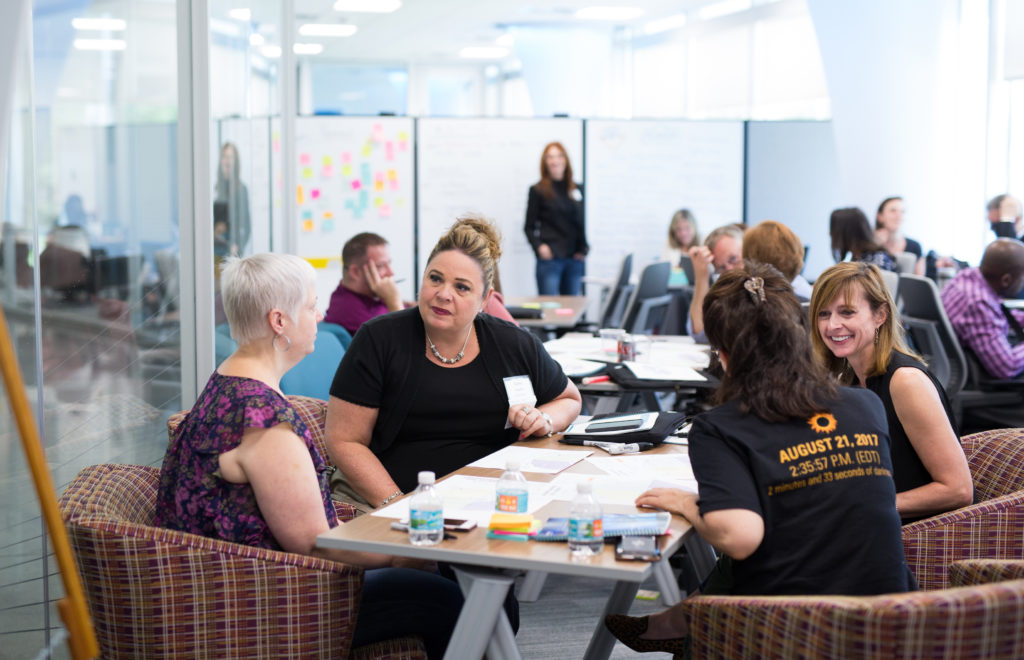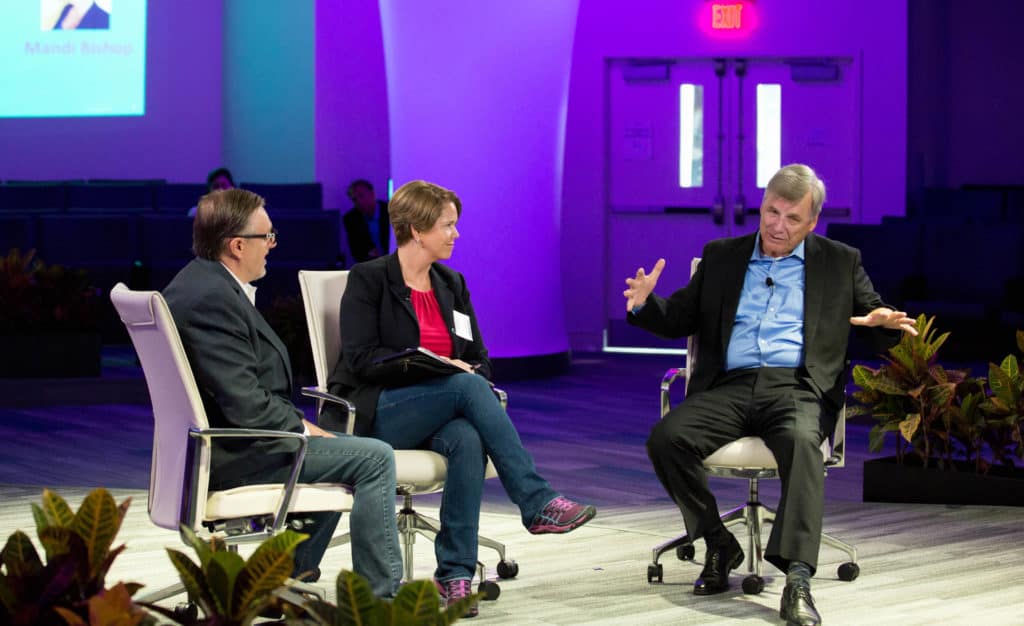
“Emerging Minds – Illuminating the Path to Mental Wellness at the GuideWell Innovation CoRE” is an ongoing collaborative and innovative exploration of the journey of individuals living with mental health conditions and their access to mental health care. Hosted by GuideWell Innovation, Emerging Minds began with a three-day immersion event that allowed participants to gain a perspective on the obstacles facing persons living with mental illness. GuideWell Innovation is anchored in Lake Nona Medical City and focused on leading broad-scale change to transform the health system into a more integral and useful part of people’s everyday lives through collaborative innovation.
Emerging Minds included leaders in mental health such as former U.S. Rep. Patrick Kennedy, Dr. Steven Chan, best-selling author Pete Earley, and Mental Health America’s Paul Gionfriddo as well as invited peer specialists, clinicians, employers and community members. They collaborated to explore the experience of a person living with a mental health condition through the journey of the mental health care continuum.
Immersion participants were encouraged to contribute, consider, listen and learn in a collaborative environment. The design of the event conscientiously and comprehensively addressed learning styles, personality types and the physical being of participants. We were engaged, educated, inspired, fed and hydrated! Even the design of the GuideWell Innovation CoRE contributed positively to the fluidity and movement of people and ideas.
To immerse in the experience of a mental health condition, each participant was invited to develop a personality experiencing a mental illness. Personalities could represent a client/patient/familiar person, a combination of persons we knew or imagined, relative to our experience and education in the mental health field.

Some participants were adept at assuming the personality; they embodied the role in conversation, during mealtime and during exercises designed for exploration when living with a mental health condition. All participants I spoke with agreed that walking in the shoes of someone else is at least uncomfortable, and at most, profoundly disorienting. It was a very emotional experience. Many reported being exhausted by it, stressed and challenged, and, ultimately, aware of a deeper responsibility to be the voice of their personality, to advocate for them and to speak for their well-being.
Through an interview exercise, we established a deeper understanding of our personality. As interviewer, we assumed our actual personal and professional roles; as interviewee, we assumed our personality. This exercise was meant to help us understand more deeply and to uncover any assumptions we might have, to develop insight and to become aware of themes and misconceptions about mental health and mental health care.
The largest percentage of personalities experienced the significant moments of understanding and insight in the earliest stage. Discussion of early diagnosis and treatment ensued. In an ironic twist, my interview partner and I were two of only three personalities of the more than 160 participants who returned to their lives seemingly unaware of their mental health needs. Additionally relevant was that each of those three personalities was living with social/cultural stigma…of being adopted, of being gay and of having a child with autism. None had yet made the connection between the stress of the social/cultural stigma and their experience of anxiety and depression.
Patrick Kennedy spoke of “living in the illness and not recognizing it.” Our three personalities lived in unchanging states of being.

As we came together in team sessions and in gradually larger groups, stigma actually emerged as a theme. Living under stigma with a socially inferior status induced/increased stress, anxiety and depression. It became evident to all that positive change in perception will contribute positively to the mental well-being of persons with mental illness as well as persons in families with a mental illness.
The power of social media and influencers to shape cultural norms and acceptance became a point of focus. One participant who spoke openly of his mental health diagnosis and experience offered the most insightful perspective; but, of course, he wasn’t creating a personality, he was sharing himself. To be sure, nearly every presenter shared personal stories of mental health care for themselves and/or family. Virtually everyone is touched by the state of our mental health care. We have the power to be influencers to help shape acceptance and understanding and to improve quality of life.
I emerged from Emerging Minds hopeful…

A white paper of the three-day immersion is due in October; this paper will synthesize the ideas and themes emerging from the immersion event. The collaboration continues with a six- to nine-month engagement of additional contributors to the field of mental wellness. Emerging Minds provides hope that emerging ideas are on the move to address a more comprehensive approach to mental well-being and to do so through the filter of a more positive approach.
Mental illness becomes mental wellness becomes mental well-being.
I could go on…brain-filling and mind-blowing!


